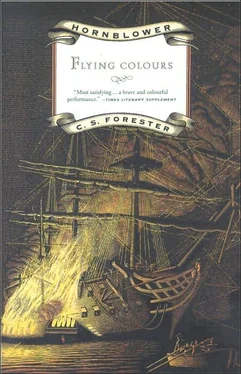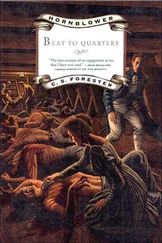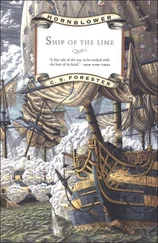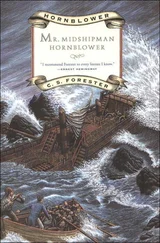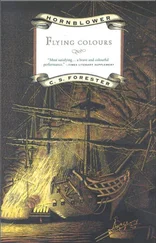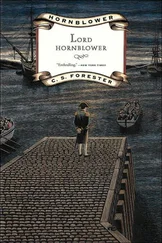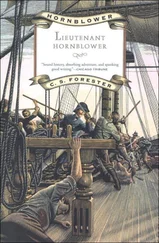Cecil Forester - Flying Colours
Здесь есть возможность читать онлайн «Cecil Forester - Flying Colours» весь текст электронной книги совершенно бесплатно (целиком полную версию без сокращений). В некоторых случаях можно слушать аудио, скачать через торрент в формате fb2 и присутствует краткое содержание. Год выпуска: 1989, ISBN: 1989, Издательство: Back Bay Books, Жанр: Исторические приключения, Путешествия и география, Морские приключения, на английском языке. Описание произведения, (предисловие) а так же отзывы посетителей доступны на портале библиотеки ЛибКат.
- Название:Flying Colours
- Автор:
- Издательство:Back Bay Books
- Жанр:
- Год:1989
- ISBN:0316289396
- Рейтинг книги:5 / 5. Голосов: 1
-
Избранное:Добавить в избранное
- Отзывы:
-
Ваша оценка:
- 100
- 1
- 2
- 3
- 4
- 5
Flying Colours: краткое содержание, описание и аннотация
Предлагаем к чтению аннотацию, описание, краткое содержание или предисловие (зависит от того, что написал сам автор книги «Flying Colours»). Если вы не нашли необходимую информацию о книге — напишите в комментариях, мы постараемся отыскать её.
Flying Colours — читать онлайн бесплатно полную книгу (весь текст) целиком
Ниже представлен текст книги, разбитый по страницам. Система сохранения места последней прочитанной страницы, позволяет с удобством читать онлайн бесплатно книгу «Flying Colours», без необходимости каждый раз заново искать на чём Вы остановились. Поставьте закладку, и сможете в любой момент перейти на страницу, на которой закончили чтение.
Интервал:
Закладка:
“What is the paragraph?” demanded Hornblower, holding out his hand for the paper.
“It is bad news, sir,” repeated the secretary, hesitatingly.
“Let me see it, damn you.”
The secretary handed over the newspaper, one finger indicating the paragraph.
“The Lord giveth, the Lord taketh away,” he said. “Blessed be the name of the Lord.”
It was a very short paragraph.
We regret to announce the death in childbed, on the seventh of this month, of Mrs Maria Hornblower, widow of the late Captain Horatio Hornblower, Bonaparte’s martyred victim. The tragedy occurred in Mrs Hornblower’s lodgings at Southsea, and we are given to understand that the child, a fine boy, is healthy.
Hornblower read it twice, and he began on it a third time. Maria was dead, Maria the tender, the loving.
“You can find consolation in prayer, sir—” said the secretary, but Hornblower paid no attention to what the secretary said.
He had lost Maria. She had died in childbed, and having regard to the circumstances in which the child had been engendered, he had as good as killed her. Maria was dead. There would be no one, no one at all, to welcome him now on his return to England. Maria would have stood by him during the court martial, and whatever the verdict, she would never have believed him to be at fault. Hornblower remembered the tears wetting her coarse red cheeks when she had last put her arms round him to say goodbye. He had been a little bored by the formality of an affectionate goodbye, then. He was free now—the realization came creeping over him like cold water in a warm bath. But it was not fair to Maria. He would not have bought his freedom at such a price. She had earned by her own devotion his attention, his kindness, and he would have given them to her uncomplainingly for the rest of his life. He was desperately sorry that she was dead.
“His Lordship instructed me, sir,” said the secretary, “to inform you of his sympathy in your bereavement. He told me to say that he would not take it amiss if you decided not to join him and his guests at dinner but sought instead the consolation of religion in your cabin.”
“Yes,” said Hornblower.
“Any help which I can give, sir—”
“None,” said Hornblower.
He continued to sit on the edge of the cot, his head bowed, and the secretary shuffled his feet.
“Get out of here,” said Hornblower, without looking up.
He sat there for some time, but there was no order in his thoughts; his mind was muddled. There was a continuous undercurrent of sadness, a hurt feeling indistinguishable from physical pain, but fatigue and excitement and lack of sleep deprived him of any ability to think clearly. Finally, with a desperate effort he pulled himself together. He felt as if he was stifling in the stuffy cabin; he hated his stubbly beard and the feelings of dried sweat.
“Pass the word for my servant,” he ordered the sentry at his door.
It was good to shave off the filthy beard, to wash his body in cold water, to put on clean linen. He went up on deck, the clean sea air rushing into his lungs as he breathed. It was good, too, to have a deck to pace, up and down, up and down, between the slides of the quarterdeck carronades and the line of ringbolts in the deck, with all the familiar sounds of shipboard life as a kind of lullaby to his tired mind. Up and down he walked, up and down, as he had walked so many hours before, in the Indefatigable, and the Lydia, and the Sutherland. They left him alone; the officers of the watch collected on the other side of the ship and only stared at him unobtrusively, politely concealing their curiosity about this man who had just heard of the death of his wife, who had escaped from a French prison, who was waiting his trial for surrendering his ship—the first captain to strike his colours in a British ship of the line since Captain Ferris in the Hannibal at Algecira. Up and down he walked, the goodly fatigue closing in upon him again until his mind was stupefied with it, until he found that he could hardly drag one foot past the other. Then he went below to the certainty of sleep and oblivion. But even in his sleep tumultuous dreams came to harass him—dreams of Maria, against which he struggled, sweating, knowing that Maria’s body was now only a liquid mass of corruption; nightmares of death and imprisonment; and, ever-recurring, dreams of Barbara smiling to him on the farther side of the horrors that encompassed him.
From one point of view the death of his wife was of benefit to Hornblower during those days of waiting. It provided him with a good excuse for being silent and unapproachable. Without being thought impolite he could find a strip of deck and walk by himself in the sunshine. Gambier could walk with the captain of the fleet or the flag captain, little groups of lieutenants and warrant officers could walk together, chatting lightly, but they all kept out of his way; and it was not taken amiss that he should sit silent at the Admiral’s dinner table and hold himself aloof at the Admiral’s prayer meetings.
Had it not been so he would have been forced to mingle in the busy social life of the flagship, talking to officers who would studiously avoid all reference to the fact that shortly they would be sitting as judges on him at his court martial. He did not have to join in the eternal technical discussions which went on round him, stoically pretending that the responsibility of having surrendered a British ship of the line sat lightly on his shoulders. Despite all the kindness with which he was treated, he felt a pariah. Calendar could voice open admiration for him, Gambier could treat him with distinction, the young lieutenants could regard him with wide-eyed hero-worship, but they had never hauled down their colours. More than once during his long wait Hornblower found himself wishing that a cannonball had killed him on the quarterdeck of the Sutherland. There was no one in the world who cared for him now—the little son in England, in the arms of some unknown foster-mother, might grow up ashamed of the name he bore.
Suspecting, morbidly, that the others would treat him like an outcast if they could, he anticipated them and made an outcast of himself, bitterly proud. He went through all that period of black reaction by himself, without companionship, during those last days of Gambier’s tenure of command, until Hood came out in the Britannia to take over the command, and, amid the thunder of salutes, the Victory sailed for Portsmouth. There were headwinds to delay her passage; she had to beat up the Channel for seven long days before at last she glided into Spithead and the cable roared out through the hawse-hole.
Hornblower sat in his cabin—he felt no interest in the green hills of the Isle of Wight nor in the busy prospect of Portsmouth. The tap which came at his cabin door heralded, he supposed, the arrival of the orders regarding his court martial.
“Come in!” he said, but it was Bush who entered, stumping along on his wooden leg, his face wreathed in smiles, his arms burdened with packages and parcels.
At the sight of that homely face Hornblower’s depression evaporated like mist. He found himself grinning as delightedly as Bush, he wrung his hand over and over again, sat him down in the only chair, offered to send for drinks for him, all trace of self-consciousness and reserve disappearing in the violence of his reaction.
“Oh, I’m well enough, sir, thank you,” said Bush, in reply to Hornblower’s questions. “And this is the first chance I’ve had of thanking you for my promotion.”
“Don’t thank me,” said Hornblower, a trace of bitterness creeping back into his voice. “You must thank his Lordship.”
“I know who I owe it to, all the same,” said Bush, sturdily. “They’re going to post me as captain this week. They won’t give me a ship—not with this leg of mine—but there’s the dockyard job at Sheerness waiting for me. I should never be captain if it weren’t for you, sir.”
Читать дальшеИнтервал:
Закладка:
Похожие книги на «Flying Colours»
Представляем Вашему вниманию похожие книги на «Flying Colours» списком для выбора. Мы отобрали схожую по названию и смыслу литературу в надежде предоставить читателям больше вариантов отыскать новые, интересные, ещё непрочитанные произведения.
Обсуждение, отзывы о книге «Flying Colours» и просто собственные мнения читателей. Оставьте ваши комментарии, напишите, что Вы думаете о произведении, его смысле или главных героях. Укажите что конкретно понравилось, а что нет, и почему Вы так считаете.
